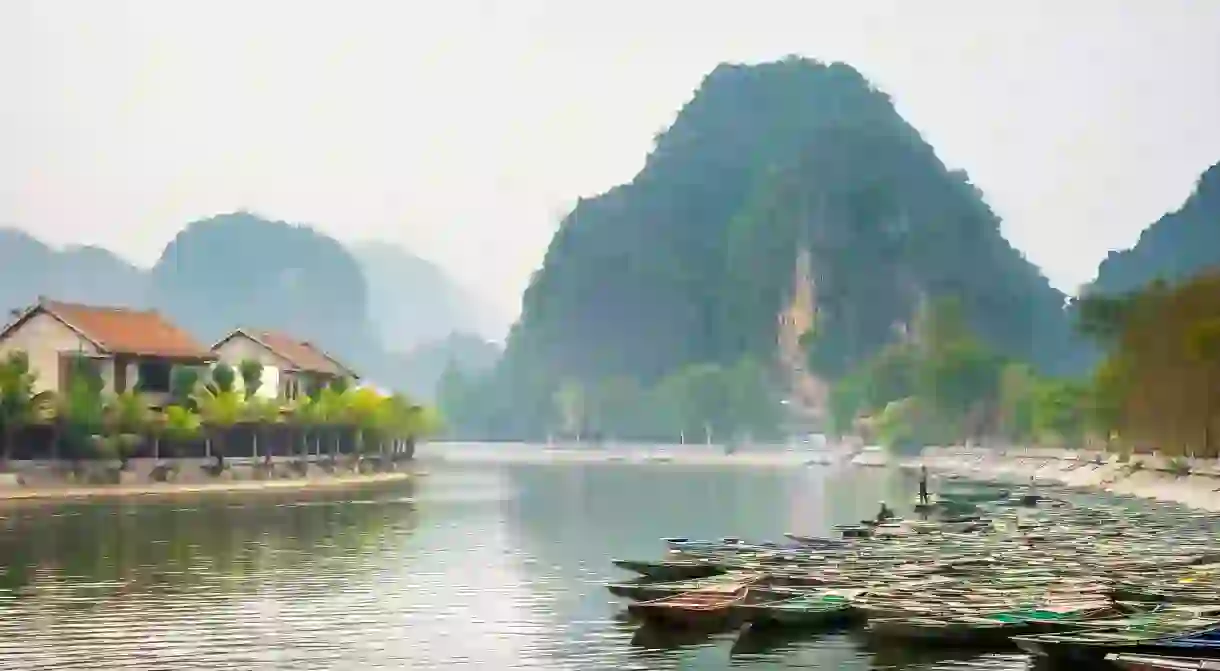A Sustainable Journey Around Rural Vietnam

Vietnam is a vast and varied country, and each destination has its own unique atmosphere to enjoy. Here are some insider tips on the best places to visit and how you can ensure you’re travelling in the most sustainable manner possible. Happy travels, eco-tourists.
With rolling green hills, winding rivers, limestone cliffs and phenomenal caves, Vietnam is unlike any other country. The beauty of its natural gems lies in how well preserved they are – meaning that every effort made by travellers to make their trips sustainable is vital to help keep it so.

Preserving the authenticity of Vietnam’s stunning countryside means travellers now, and in the future, can enjoy the the country’s unspoiled charm. Here’s how to make the most of rural Vietnam by choosing the place that’s right for you and supporting communities as you go.
The Mekong Delta
In southern Vietnam, you’ll find a community built around winding, palm-fringed rivers and swamps. Houses and markets float on the waters in the Mekong Delta; wooden boats cruise the narrow canals.

Tour boats breeze up and down the Mekong River all day every day which can mean overcrowding. But pick the right tour group and you’ll find yourself immersed in local culture, your tourist pennies going back into the community you’re visiting. Alongside sailing, enjoy restaurants run by the families of the Mekong Delta, visit local workshops to buy eco-friendly souvenirs and learn about the trade, and get the chance to cycle the country lanes to see the locals go about their days. You can even join a cycle-only tour where you’ll see all of the sites without clogging up the rivers.

Vietnam’s popularity is growing, so development through tourism is an increasingly important part of locals’ lives. Eco-friendly tour groups will consider the communal benefits of your visit. Check the company’s websites and talk to other travellers or locals to make informed decisions. If a tour promotes sustainability, it will usually say so.
Sa Pa
Luscious green rice paddies stretch to the horizon in Sa Pa, giving this northern village an otherworldly feel. If you’re looking for tradition and interesting culture, Sa Pa is a must. The Hmong community, particular to this area of Vietnam, still reside here and work in the fields. It’s an area famous for trekking through the stunning mountains and valleys, and has become one of the most-visited places in the country.

Tourism development partners – those who fund eco-tourism initiatives – have got behind trekking excursions in Sa Pa so again, if you’re going to do a tour, it’s all about picking the right operator. A good example is SaPa O’Chau: the first international, not-for-profit tour operator developed by a woman from the Hmong community. Profits from the tour support local education and you can even volunteer to help them out.

Ba Be National Park
This UNESCO Natural World Heritage Site, located in the northeast region of Bac Kan, is a nature-lover’s dream. Gaze in wonder at the only significant natural mountain lake in Vietnam, surrounded by mountainous forests as far as the eye can see. When the light catches the waters, it’s really special.

Ba Be National Park is famously home to an impressive number of species of fish, insects, flora and fauna, and animals such as monkeys. With access to a thriving natural habitat as untouched as Ba Be National Park, there’s no need for animal tourism.

Many ethnic minority communities live in the region too. The lake is a means of communication for them and a source of food. It also helps regulate flooding of the nearby Nang River. Tourism means money to support them and this environmentally vital site.
Ninh Binh
Known as an ‘inland Ha Long Bay’ – and a far less-crowded version – Ninh Binh’s views are like something from a storybook. The limestone cliffs, endless rivers, glowing rice paddies and floating temples will leave you amazed.

Tours from nearby Hanoi are available, but doing it yourself will reduce your footprint and give you a more personalised experience. Catch a train to Ninh Binh station then cycle to nearby Tam Coc and Trang An, where you’ll find homestays with locals to rest after long days of exploring. Trang An river tours are a joy. You’ll see sites like the floating temples while exploring caves and tunnels from your wooden boat. Look for those run by residents.
Quang Bin
If you’re looking for a thrill, there’s possibly no better place than Quang Bin, home to humongous cave Hang Son Doong which boasts the largest known cave passage in the world. It even has an underground tunnel connecting it to another cave. We challenge you to find somewhere cooler than that!

Delve into the depths of the phenomenal systems below, marvelling at rock formations, turquoise waters and unbelievable wildlife, from flying foxes to recently-discovered species’ of scorpion. If you’re really, really brave, you can even camp out there with your guide.

For the sustainable traveller, it’s comfort to know there’s only one company licensed to run tours, Oxalis Adventure Tours, which controls crowds. Oxalis is committed to sustainable tourism and minimising environmental impact. 95% of employees are locals which, as well as providing economic stability within the community, has led to a reduction of logging and hunting in the area. Phong Nha-Ke Bang, the national park in which the cave sits, is also well-preserved with fabulous biodiversity.













